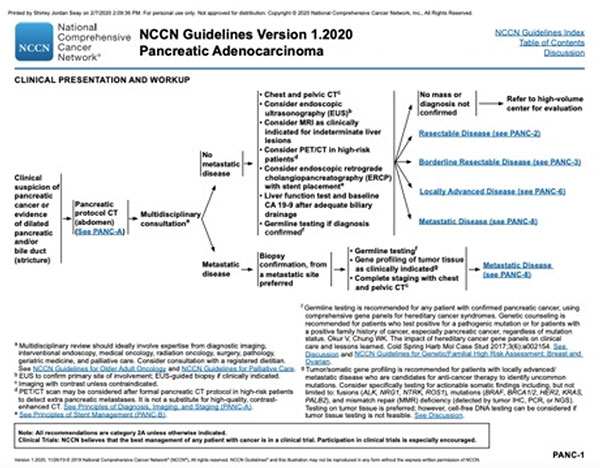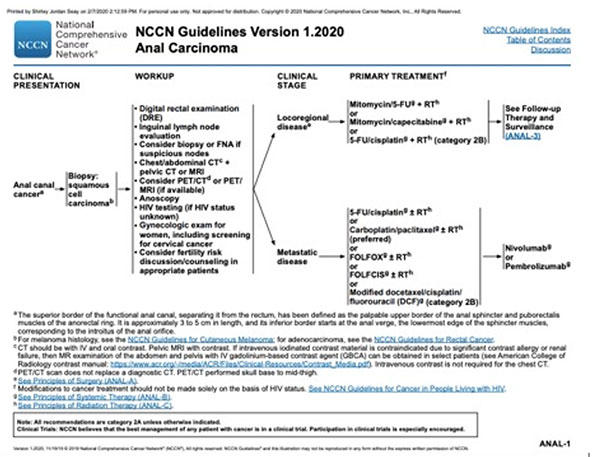NCCN (National Comprehensive Cancer Network) Guidelines
NCCN is a not for profit organization composed of 28 leading cancer centers across the US whose focus is on patient care, research, and education. The overarching goal is quality patient outcomes.
NCCN guidelines were developed to help guide quality patient care. The guidelines are available in a clinician version and a patient version. The guidelines were designed to show expected workup and treatment options based on patient presentation, cancer type and stage of disease.
The guidelines are very specific related to types of treatment including specific surgical procedures and specific drug treatment regimens.
The NCCN guidelines are an invaluable tool to the cancer registrar as it identifies the specific workup that should be done. This helps the registrar know which tests, exams, and radiology information that should be documented in the text. The guidelines also indicate treatment options based on stage of disease, prognostic indicators, results of genetic tests, and other factors. Armed with this information the registrar can anticipate what the expected treatment should be and what modalities or treatments to look for in the medical record in the absence of a detailed treatment plan.
Because oncology care is always changing and new options for treatment are being discovered and developed, the NCCN guidelines are regularly updated based on current standards of care and evidenced based research. The registrar should make sure that the most current NCCN guideline for that diagnosis year is being used as a resource.
The diagrams depict an excerpt from a pancreatic and anal cancer clinician guideline.

Figure 1. Excerpt of page 8 of NCCN Guidelines Version 1.2020 Pancreatic Adenocarcinoma. [8 need permission]
Updated: December 21, 2023
Suggested Citation
SEER Training Modules: NCCN (National Comprehensive Cancer Network) Guidelines. U.S. National Institutes of Health, National Cancer Institute. Cited 07 February 2026. Available from: https://training.seer.cancer.gov.





